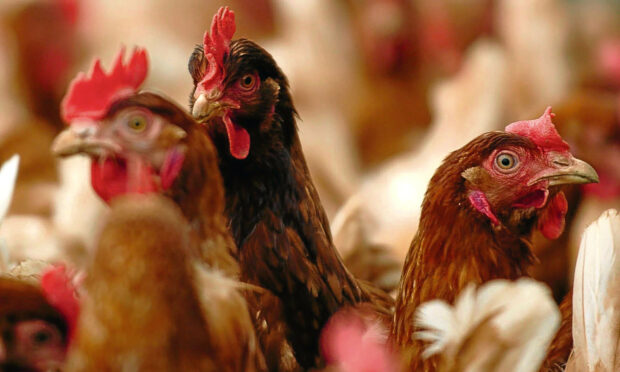Poultry farmers and bird keepers are being encouraged to take steps to reduce the risk of avian influenza this winter.
Government chief vets from Scotland, Wales, Northern Ireland and the UK are urging all bird keepers to take action now to reduce their disease risk.
Scotland’s chief veterinary officer Sheila Voas said: “Given the constant risk of bird flu in the UK from wild birds, I would urge bird keepers to take some simple actions now to help reduce the chance of their birds becoming infected. These could include steps to reduce contact with wild birds, particularly on ponds and other water bodies.
“One of the main challenges government faced during last year’s avian influenza outbreak was being able to contact bird keepers with small numbers of birds. To stay up to date with the latest situation I would encourage bird keepers – including those who are already on the GB Poultry Register – to sign up for the Animal and Plant Health Agency free text alerts service.”
The vets have issued guidance for all bird keepers, from commercial farmers to those who keep a few pet chickens in their back garden, to reduce the risk of dsiease before autumn migration of ducks and geese begins again this winter.
These include keeping the area where the birds live clean and tidy, controlling rats and mice, and regularly disinfecting any hard surfaces.
In addition, bird keepers are asked to clean footwear before and after visiting birds.
Birds’ food and water should be placed in fully enclosed areas that are protected from wild birds, and any spilled feed must be removed regularly.
Keepers are also encouraged to put fencing around outdoor areas where birds are allowed, and to limit their access to ponds or areas visited by wild waterfowl.
The warning from the government vets comes ahead of winter 2017 following outbreaks of the highly pathogenic H5N8 strain of bird flu last winter.
The disease was found in 13 kept flocks in the UK, ranging in size from as few as nine birds to as many as 65,000.
The UK Government’s food and farming ministry, Defra, said although there has been a decline in the number of new cases over the summer, keepers must remain vigilant for the disease as it is still ciculating in kept poultry across Europe.
Italy is the most recent European country to suffer a series of outbreaks, and the disease has also recently been confirmed in a dead mute swan in Norfolk.
